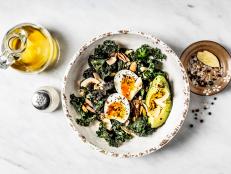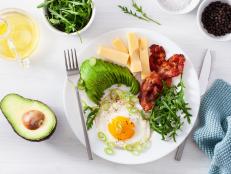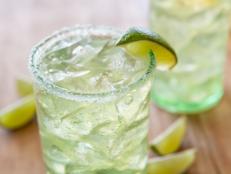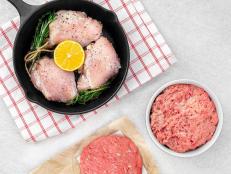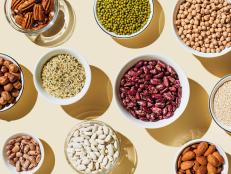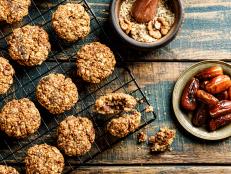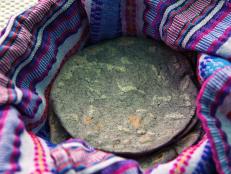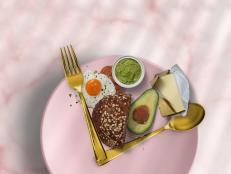What Actually Happens to Your Body When You Stop the Keto Diet?
One result might be a better night's sleep.

Elena Elisseeva
Regardless of the reasons you stop the ketogenic diet, there will be consequences to reintroducing carbs. Maybe you've decided you're anti-diet, or perhaps you just want to enjoy meals without counting every macro. The key to transitioning off the low-carb, high-fat keto diet is to do it slowly. Reintroduce carbs to one meal a day gradually.
By transitioning in a slow and steady way, you might avoid uncomfortable side effects and reap benefits like these:
Better cholesterol levels — The absence of fiber-rich fruits and the abundance of meats high in saturated fat may have spiked your blood cholesterol. Slowly decrease fat and increase antioxidant-rich carbs by way of dairy, whole grains, fruits and vegetables. Try adding about 10 to 15 grams of carbs per day to the same meal for the first seven days. For example, if you have been consuming only 20 grams of total carbs each day, try adding 10 grams more of carbs to dinner each night for a week. Seven days later you'll be up to 90 grams a day, and you may even sleep better, because eating carbs at night usually leads to more restful sleep. Stay at this carb level for a few days and see how you feel before introducing more.
More muscle — Proteins are the building blocks of muscle. Researchers have found that it generally takes 20 to 30 grams of protein consumed in one meal to turn on muscle synthesis. Usually, around 65 to 110 grams of protein are allowed on an 1,800-calorie keto diet. But you may not have gotten that, as most keto dieters focus mainly on fat. Going off keto may lead to gains in muscle mass. And that's especially good news if you're over 30 years; as we age, muscle synthesis begins to decrease. Less overall muscle mass means we burn fewer calories at rest and can eventually lose strength and mobility. To help the keto transition, gradually replace the higher-fat proteins you've been consuming with lean proteins.
Better energy — Claims of keto "turbo-charged energy" may have proven true for your short workouts, but for longer, more intense workouts, muscles need carbs. Without carbohydrates to build up glycogen stores, or muscle fuel, muscles will run out of gas. And when you don't have the energy to work out, muscle loss can occur. This is especially true since carbs are necessary to renew and repair muscles. Ditching keto means you can enjoy having energy during workouts, especially if you fuel up with some of the best workout recovery snacks, like chocolate milk, fruit smoothies with protein powder and banana-egg pancakes.
More anti-inflammatory foods — One of the biggest benefits of going keto is the focus on eating lots of low-carb vegetables to help fill your plate. So hopefully you've gotten into a daily habit of eating cucumbers, red peppers, cabbage, cauliflower and other veggies. When you stop keto, you can eat a whole rainbow of veggies like antioxidant-rich sweet potatoes, white potatoes, carrots and squash. Eating more vegetables and fruits can reduce inflammatory markers in the body, and reducing inflammation is key for reducing disease risk. So it's a big deal to again be able to eat mangoes, oranges, grapes, bananas, cherries and other fruits that weren't allowed on keto.
Better gut health — More higher-carb, anti-inflammatory foods, like beans, lentils, whole grains and fruits, also means more fiber. The Dietary Guidelines recommend consuming whole grains daily, and beans and legumes should be eaten twice a week. To avoid constipation, introduce these foods slowly as part of the gradual increase in carbs.
Weight stability — Due to the slashing of calories and the lack of hunger that comes from a high-fat diet, a keto diet can end up being very low in calories. A very low-calorie diet equals weight loss — sometimes in a short amount of time. But when weight comes off quickly, it can go back on quickly. Realize that some water weight will naturally come back on. And to help maintain healthy weight loss, seek the advice of a local registered dietitian.
Related Stories:
Serena Ball, MS, RD is a registered dietitian nutritionist, food writer and recipe developer. She blogs at TeaspoonOfSpice.com and is the author of the best-selling The 30-Minute Mediterranean Diet Cookbook. Follow her @TspCurry on Twitter and Instagram.
























